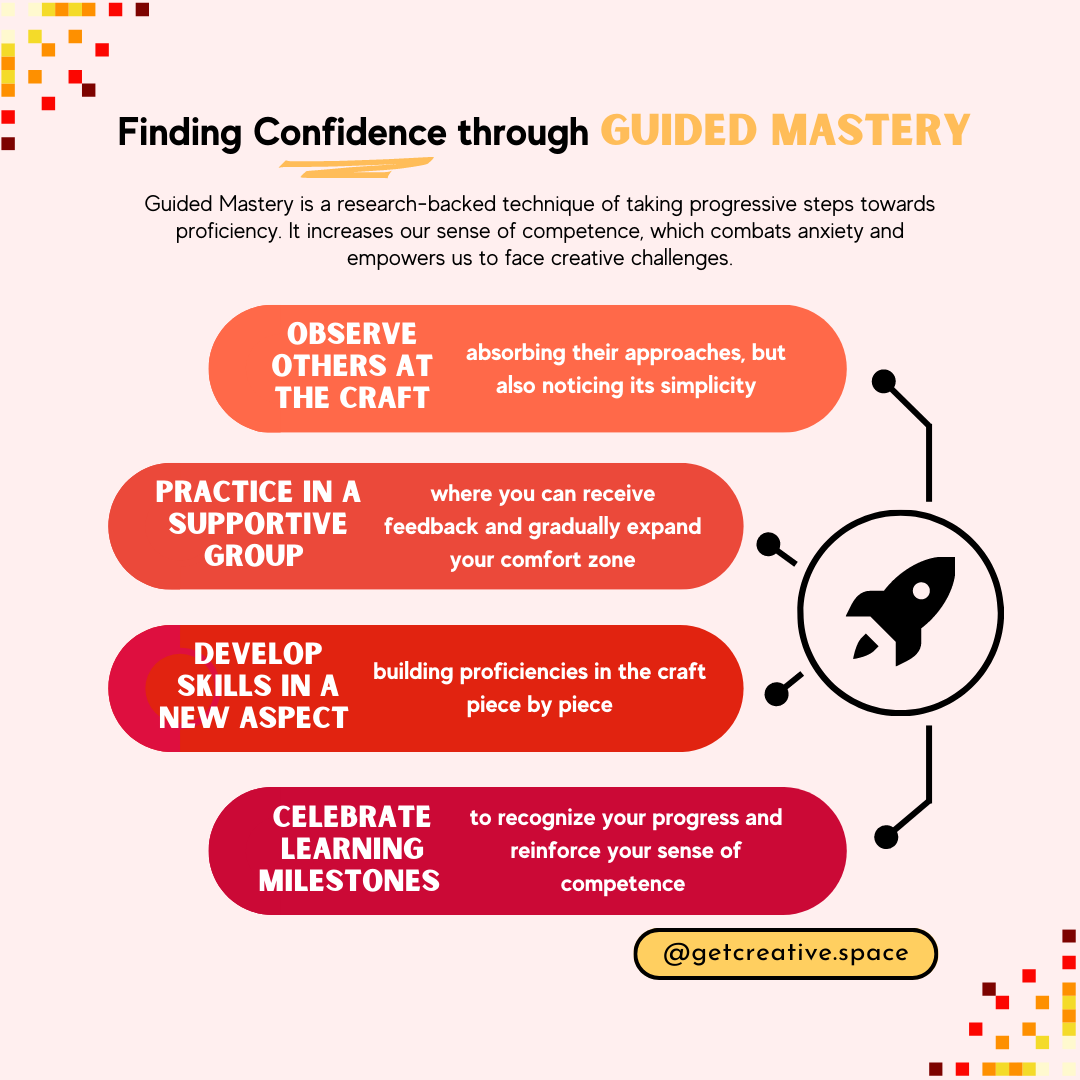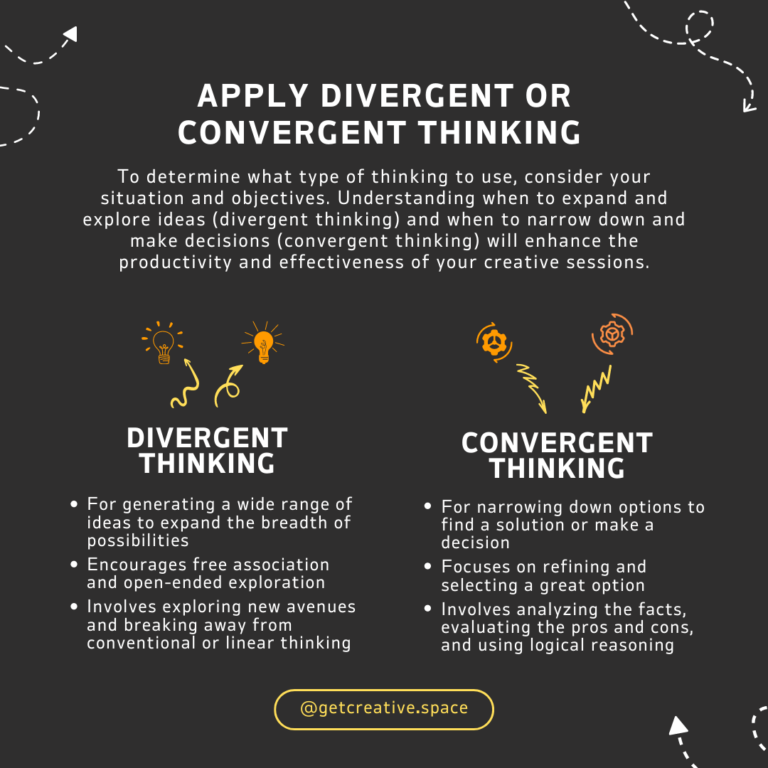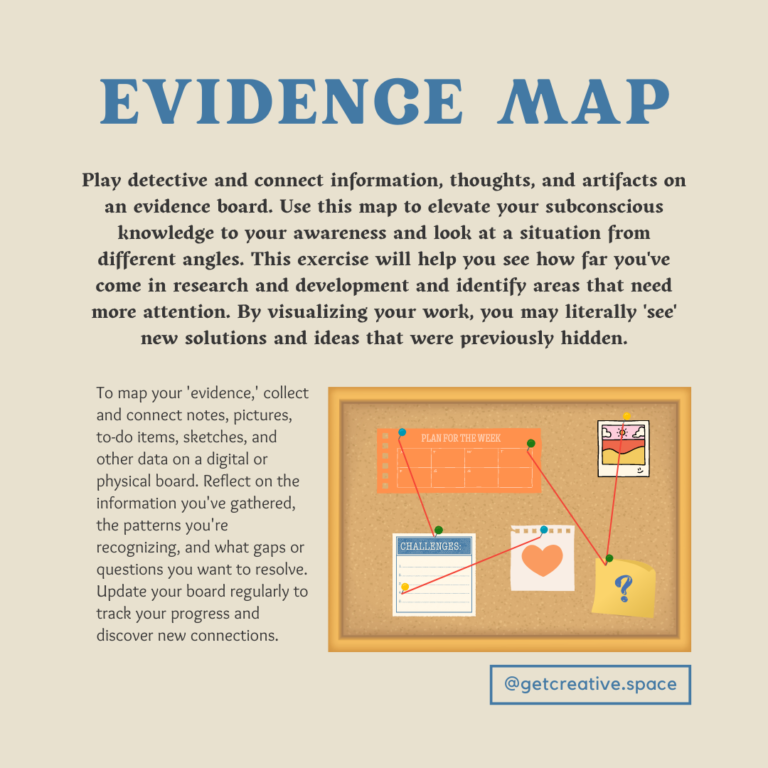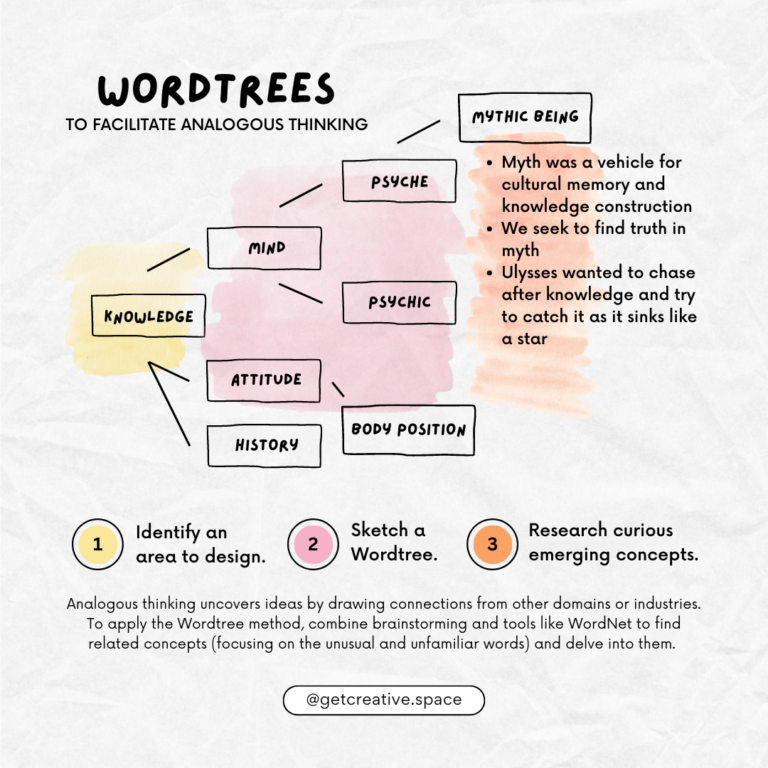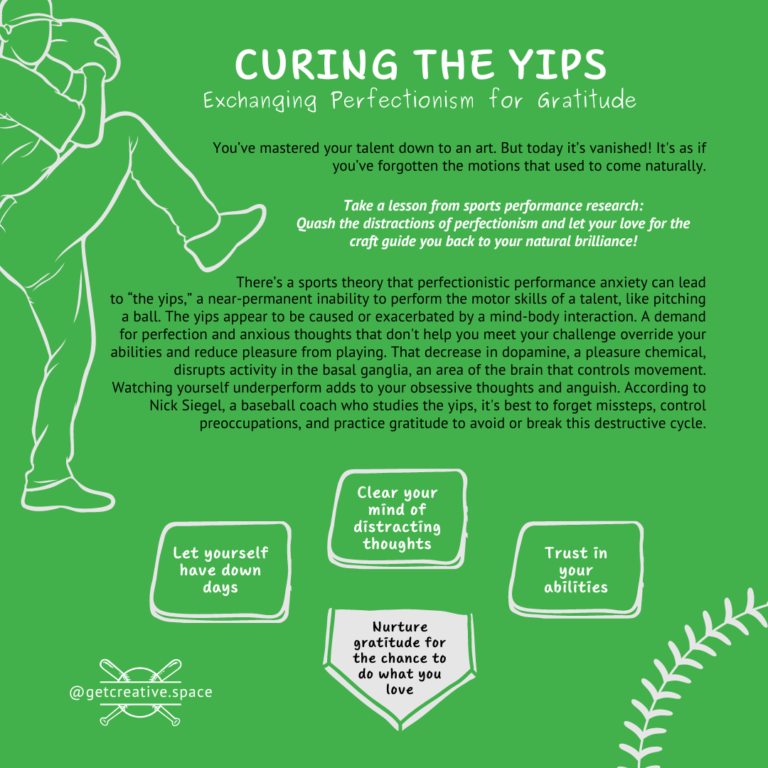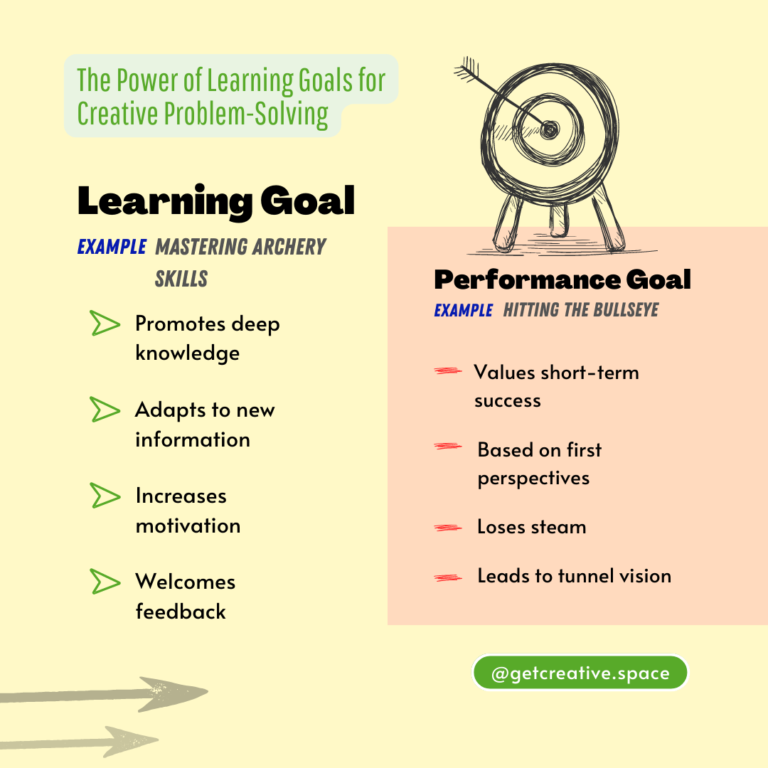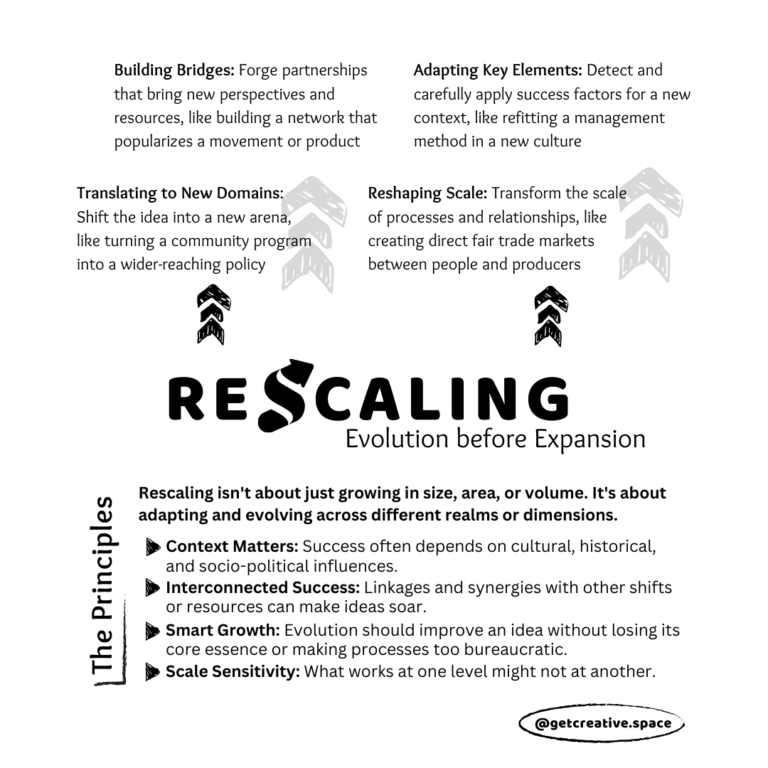Finding Confidence through Guided Mastery
Fear is a formidable obstacle to creativity, paralyzing our ability to take risks and explore new ideas. Overcoming this fear is essential for harnessing the persistence and confidence to purse creative projects. An effective approach to building a resilience to fear is Guided Mastery, a therapeutic method developed by psychologist Albert Bandura and advocated by d.school founders Tom and David Kelley. 1 Guided Mastery involves progressively increasing levels of participation and skill development. By taking small steps towards proficiency, we gradually increase a sense of agency and competency, which helps combat anxiety and empowers us to face challenges head-on.
A research study conducted by William, Tuner, and Peer demonstrated the effectiveness of Guided Mastery in reducing anxiety related to phobias. Participants who engaged in guided mastery techniques reported an average anxiety level 25% lower during follow-up compared to those who solely underwent stimulus exposure.2
According to renowned psychologist Dr. Angela Duckworth, Guided Mastery can be likened to using training wheels when learning to ride a bicycle.3 For instance, if public speaking is a source of fear, building confidence through Guided Mastery involves a gradual progression of mastery. Start by observing inspiring TED talks and attending skill-building workshops to gain insights and knowledge. Then, practice breath control techniques to learn how to manage anxiety. As you gain proficiency, challenge yourself further by recording videos for social media and seeking feedback. Each step forward enhances your competence and reduces anxiety, making it easier to persist and refine your craft.
To defy creative anxiety, the key is to act and learn. Here are four practical ways to apply Guided Mastery:
- Observe others at the craft, absorbing their approaches, but also noticing its simplicity.
- Practice in a supportive group where you can receive feedback and gradually expand your comfort zone.
- Develop skills in a new aspect or facet of the craft, building proficiency piece by piece.
- Celebrate milestones to recognize your learning and reinforce your sense of competence.
By adopting these strategies, you can overcome the barriers of fear and anxiety, embarking on a journey of discovery and unlocking your creative potential.
- Kelley, T., & Kelley, D. (2013). Creative confidence: Unleashing the creative potential within us all. Crown Business.
- Williams, S. L., Turner, S. M., & Peer, D. F. (1985). Guided mastery and performance desensitization treatments for severe acrophobia. Journal of Consulting and Clinical Psychology, 53(2), 237–247. https://doi.org/10.1037/0022-006X.53.2.237
- Duckworth, A. (2021, October 18). Guided mastery. Psychology Today.

